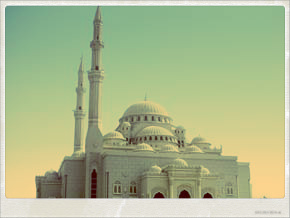Tranlators Associations Eurasia: ISAT
"Start where others have ended"
 The Arab Higher Institute for Translation wants to go beyond the mere translators association, providing assistance in areas of research and dissemination of documents, working together with centres in the Arab region and worldwide. The Arab Higher Institute for Translation wants to go beyond the mere translators association, providing assistance in areas of research and dissemination of documents, working together with centres in the Arab region and worldwide.
The Arab Higher Institute for Translation (ISAT) wants to go beyond being a mere translators association. It wishes to provide assistance in areas of research and dissemination of documents, working together with centres in the Arab region and worldwide. In addition, ISAT wants to establish a network of regional and international scientific contribution for the promotion of Arab and Islamic heritage and a library for the Arab interpreters’ community.
As a matter of fact, the institute believes “in the importance of contributing as much as possible to the definition of the Arab and Islamic heritage by translating books from Arabic into other languages, in order to improve the image of the Arab and Islamic people” in the eyes of the rest of the world.
The translation association aspires to the creation and development of laboratories that will do research in the field of translation and linguistic sciences, in coordination with universities and institutes in the Arab world and various research centres. On the other hand, ISAT wants to conduct a survey on the expertise and capacity of Arabs and foreign in the teaching of translation, production and organisation of seminars and conferences on issues that will drive the translation movement forward and help overcome whatever difficulties may hinder the work of the translator.
In order to achieve its goals, the Arab institute has divided its activity in three different groups. The first concerns the organisation of training courses in the areas of short-range translation and terminology, that will hopefully improve the levels of professionals in the field of translation and related subjects.
The second group is concerned with research and documentation. It prepares research programmes and studies in the science of translation and language technology. It also prepares training programmes both in the above-mentioned subjects and in interpreting as well. This group is also responsible for the dissemination of research, documentation and research exchanged with other Arab centres.
Furthermore, it is in charge of establishing laboratories for research in the relevant sciences, in coordination with universities and institutions in the Arab world. Also, it is in its hands to organise conferences and seminars on topics that will take translation to a higher level, the issue of series of educational books on the subject and methods applied to it, so that the work of the student and the translators is facilitated. The research and documentation group of this translators association also organises study days, during which books are presented – with the authors’ presence if possible – and is in charge of issuing the association’s quarterly journal with the participation of prestigious specialists.
The third group of the Arab organisation is responsible for translation and production, which means it translates the most important books written on the profession, with the aim of establishing a library for the Arab translator and interpreter and provide the necessary theoretical knowledge about the exercise of the profession. It also takes care of translations of other books about science and knowledge, from and to Arabic. It contributes as much as possible in the definition of the Arab and Islamic heritage.
A particular project in which the translation association is involved is the development of a book about the human values embodied in the Quran, particularly in the verses containing seven themes (justice, tolerance and charity, work, peace, love and compassion) and its translation into five foreign languages (French, English, German, Spanish and Chinese).
In order to perform these tasks and achieve the goals it has established, the ISAT has gathered “the best group of Arab experts” and decided to follow some strategic directions. One of its guidelines includes the curious motto “start where others have ended”.
Keep in mind that Arabic is spoken by 221 million people. Most often identified with the Middle East and North Africa, Arabic is the official language of 26 countries.
LEXIS INFORMS:
When you sign up as a Premium member, Lexis and Red Horse offer you a comprehensive and customisable multilingual non-disclosure agreement to sign together with your clients. Lexis – Connections with meaning
Read other news about Translators Associations from Eurasia
|

